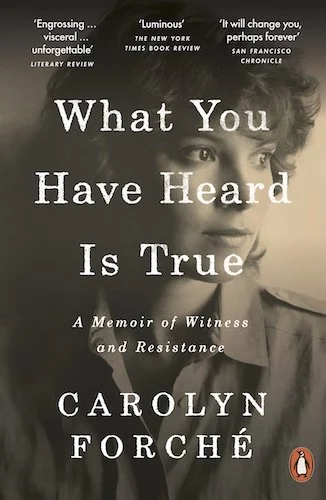What You Have Heard is True
From the beginning, Carolyn Forché’s memoir What You Have Heard Is True (Penguin) reads like a thriller. As a twenty-something poet living in California in the late 1970s, Forché is surprised and puzzled when a Salvadoran man named Leonel shows up at her house, invites himself in, and without explaining why, launches into a days-long lecture on El Salvador’s history, culture, and politics, scribbling elaborate diagrams on her dining room table using butcher paper.
For reasons that defy logic, Forché doesn’t kick him out, even when he keeps ignoring her queries about why he’s there and what he wants. Even when she hears a rumor he may be with the CIA. Or he may be a Marxist guerrilla. Or a mercenary. Or a humanitarian. No one really knows. She certainly doesn’t. Eventually, Forché follows him to El Salvador, a country on the brink of civil war, and things get really dicey from there.
In the spirit of the mysterious Leonel, the less you know about this book before you read it, the better.
